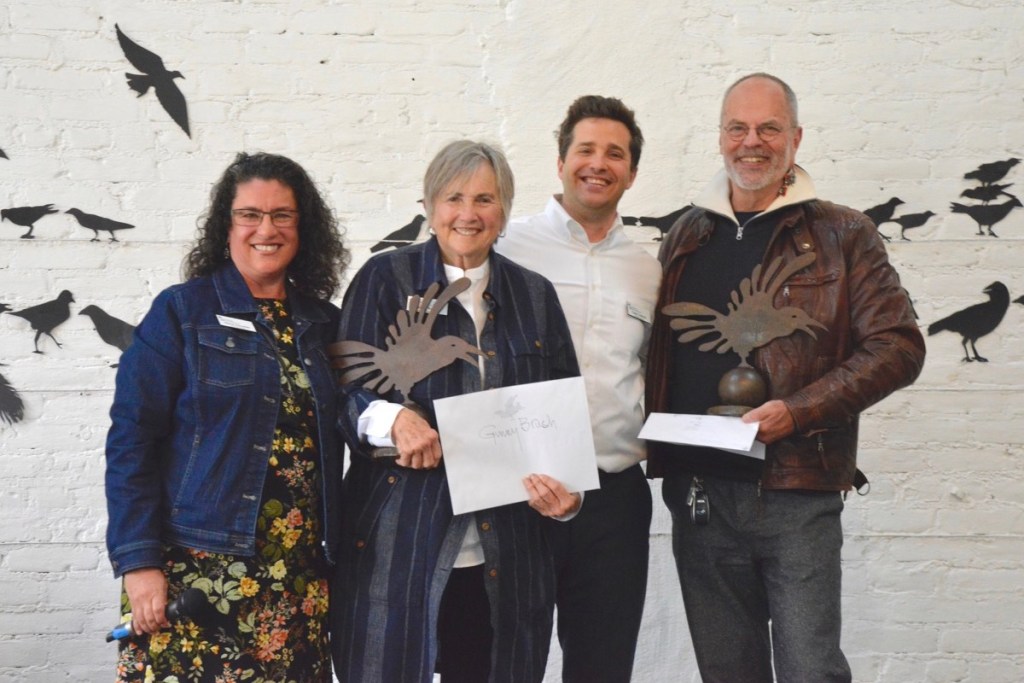Back in 1985, the Community Arts Workshop was first hatched as a conceptual gleam in the eye of an Arts Master Plan concocted by arts activists for the South Coast. One year later, Casey Caldwell was born, and for the past seven years, he’s been running the Community Arts Workshop—better known as CAW—located at the site of the former recycling plant by Ortega and Garden streets.
This past Sunday, a crowd of arts-minded movers and shakers mingled, thronged, speechified, and otherwise celebrated the end of the 10-year capital campaign that raised $2 million to convert that former recycling facility into a 15,000-square-foot “blank canvas” — consisting of two buildings and four rooms — to be used as performance, rehearsal, and all-purpose workshop space for visual and performance artists and musicians. It’s where the Pianos on State Street get painted every year and the organized chaos of Santa Barbara’s annual Summer Solstice celebration marinates and congeals.
The prices charged are by far the lowest in town; there’s no other space — so large, so flexible, so cheap — like it. Every year, the CAW provides space to roughly 36 unique and distinct events. Some have 200 participants; others have just one. In the early days, there was resistance to the name; people would call it the “CAW.” Efforts to secure an acceptable alternative went nowhere.
During these discussions, ironwork artist David Shelton drew an illustration of a crow, which has since become not just the organization’s unifying logo, but the name — and likeness — of the award the organization gave out this Sunday to people who played a major role helping the CAW come into being. On the receiving end of such crows were former county arts commissioner Ginny Brush and Joe Rohde.
In an interview afterward, Caldwell took note of the many times the CAW could easily have died between 1985 and now and how crucial the help of people like Brush and Rohde were. When asked what kind of community celebration he would hold, Caldwell said the organization’s annual community art show — open to artists of any skill level so long as their work was bigger than 12-inches by 12 inches — fit the bill. Last year, he said the show had more than 400 exhibits submitted by more than 200 artists.

